Earth
Sign up for our newsletter
We summarize the week's scientific breakthroughs every Thursday.
-
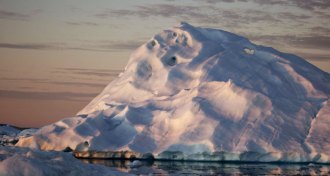 Climate
ClimateSeafloor map shows why Greenland’s glaciers melt at different rates
A new high-res look at the seafloor shows how ledges and dips affects whether relatively warm ocean water reaches the ice.
-
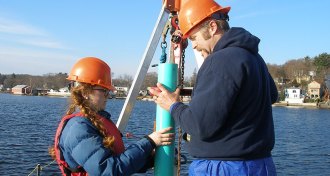 Earth
EarthPowerful New England quake recorded in pond mud
The newfound sediment signature of the 1755 Cape Ann earthquake could be used to trace other prehistoric temblors.
-
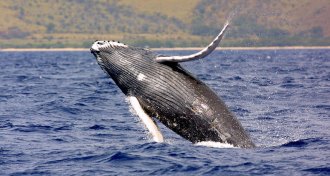 Animals
AnimalsHumpback whale bumps have marine biologists stumped
Christine Gabriele is taking tissue samples from humpback whales in Hawaii to determine why more and more have nodular dermatitis.
-
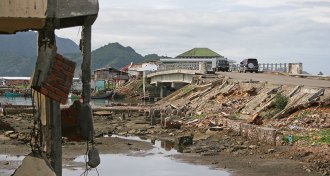 Science & Society
Science & SocietyHow past disasters can help us prepare for the future
In The Big Ones, seismologist Lucy Jones examines the science behind some of the most catastrophic natural disasters in human history.
By Kyle Plantz -
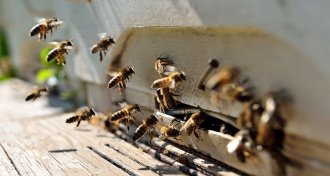 Environment
EnvironmentHow bees defend against some controversial insecticides
Some bees have enzymes that allow them to resist toxic compounds in some neonicotinoid pesticides.
By Dan Garisto -
 Science & Society
Science & SocietyWhy it’s great to have a geologist in the house
Editor in Chief Nancy Shute enthuses about learning how ancient plans may have helped make Earth muddy.
By Nancy Shute -
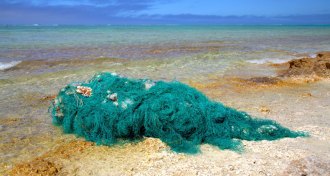 Environment
EnvironmentThe great Pacific garbage patch may be 16 times as massive as we thought
The giant garbage patch between Hawaii and California weighs at least 79,000 tons, a new estimate suggests.
-
 Earth
EarthFalse alarms may be a necessary part of earthquake early warnings
To give enough time to take protective action, earthquake warning systems may have to issue alerts long before it’s clear how strong the quake will be.
-
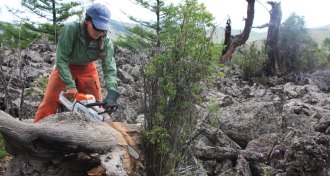 Climate
ClimateTree rings tell tale of drought in Mongolia over the last 2,000 years
Semifossilized trees preserved in Mongolia contain a 2,000-year climate record that could help predict future droughts.
By Dan Garisto -
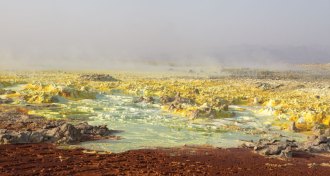 Earth
EarthWill Smith narrates ‘One Strange Rock,’ but astronauts are the real stars
Hosted by Will Smith, ‘One Strange Rock’ embraces Earth’s weirdness and explores the planet’s natural history.
-
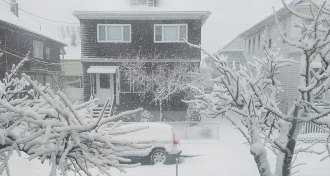 Science & Society
Science & SocietyWhat we can and can’t say about Arctic warming and U.S. winters
Evidence of a connection is growing stronger, but scientists still struggle to explain why.
-
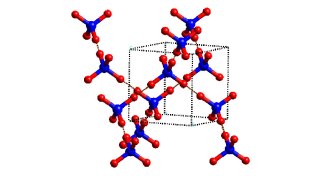 Earth
EarthDiamonds reveal sign of the deepest water known inside Earth
A rare form of ice crystal in the gems could have formed only at the crushing pressures found in the mantle.